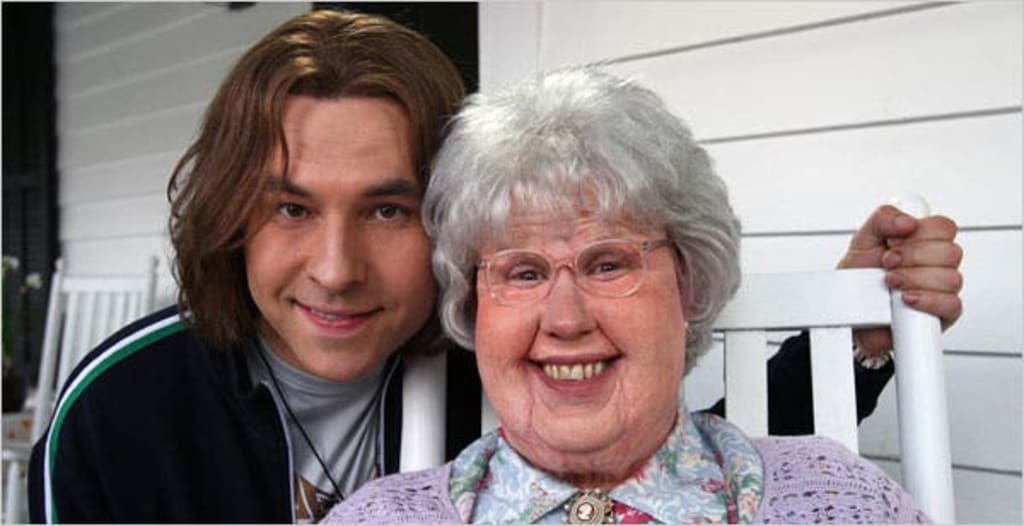
Thus wrapped up in its own concerns, its own habits, and its own
opinions, Little Britain has long flourished as a sound heart to this great
fungous metropolis. I have pleased myself with considering it as a chosen
spot, where the principles of sturdy John Bullism were garnered up, likeseed corn, to renew the national character, when it had run to waste and degeneracy. I have rejoiced also in the general spirit of harmony that prevailed throughout it; for though there might now and then be a few clashes of opinion between the adherents of the cheesemonger and theapothecary, and an occasional feud between the burial societies, yet these were but transient clouds, and soon passed away. The neighbors met with good-will, parted with a shake of the hand, and never abused each other except behind their backs. I could give rare descriptions of snug junketing parties at which I have been present; where we played at All-fours, Pope- Joan, Tome-cometickle-me, and other choice old games; and where we sometimes had a good old English country dance to the tune of Sir Roger de Coverley. Once a year, also, the neighbors would gather together, and go on a gypsy party to Epping Forest. It would have done any man's heart good to see the merriment that took place here as we banqueted on the grass under the trees. How we made the woods ring with bursts of laughter at the songs of little Wagstaff and the merry undertaker! After dinner, too, the young folks would play at blind-man's-buff and hide-and-seek; and it was amusing to see them tangled among the briers, and to hear a fine romping girl now and then squeak from among the bushes. The elder folks would gather round the cheesemonger and the apothecary to hear them talk politics; for they generally brought out a newspaper in their pockets, to pass away time in the country. They would now and then, to adjusted by reference to a worthy old umbrellamaker, in a double chin, who, never exactly comprehending the subject, managed somehow or other to decide in favor of both parties. All empires, however, says some philosopher or historian, are doomed to changes and revolutions. Luxury and innovation creep in; factions arise; and families now and then spring up, whose ambition and intrigues throw the whole system into confusion. Thus in latter days has the tranquillity of Little Britain been grievously disturbed, and its golden simplicity of manners threatened with total subversion by the aspiring family of a retired butcher. The family of the Lambs had long been among the most thriving and popular in the neighborhood; the Miss Lambs were the belles of Little Britain, and everybody was pleased when Old Lamb had made money enough to shut up shop, and put his name on a brass plate on his door. In an evil hour, however, one of the Miss Lambs had the honor of being a lady in attendance on the Lady Mayoress, at her grand annual ball, on
which occasion she wore three towering ostrich feathers on her head. The family never got over it; they were immediately smitten with a passion for high life; set up a one-horse carriage, put a bit of gold lace round the errand boy's hat, and have been the talk and detestation of the whole neighborhood ever since. They could no longer be induced to play atPope-Joan or blind- man's-buff; they could endure no dances but quadrilles, which nobody had ever heard of in Little Britain; and they took to reading novels, talking bad French, and playing upon the piano. Their brother, too, who had been articled to an attorney, set up for a dandy and a critic, characters hitherto unknown in these parts; and he confounded the worthy folks exceedingly by talking about Kean, the opera, and the "Edinburgh Review." What was still worse, the Lambs gave a grand ball, to which they
neglected to invite any of their old neighbors; but they had a great deal of genteel company from Theobald's Road, Red- Lion Square, and other parts towards the west. There were several beaux of their brother's acquaintance from Gray's Inn Lane and Hatton Garden; and not less than three Aldermen's ladies with their daughters. This was not to be forgotten or forgiven. All Little Britain was in an uproar with the smacking of whips, the lashing of miserable horses, and the rattling and the jingling of hackney coaches. The gossips of the neighborhood might be seen popping their nightcaps out at every window, watching the crazy vehicles rumble by; and there was a knot of virulent old cronies, that kept a lookout from a house just opposite the retired butcher's, and scanned and criticised every one that knocked at the door. This dance was a cause of almost open war, and the whole neighborhood declared they would have nothing more to say to the Lambs. It is true that Mrs. Lamb, when she had no engagements with her quality acquaintance, would give little humdrum tea-junketings to some of her old cronies, "quite," as she would say, "in a friendly way;" and it is equally true that her invitations were always accepted, in spite of all previous vows to the contrary. Nay, the good ladies would sit and be delighted with the music of the Miss Lambs, who would condescend to strum an Irish melody for them on the piano; and they would listen with wonderful interest to Mrs. Lamb's anecdotes of Alderman Plunket's family, of Portsokenward, and the Miss Timberlakes, the rich heiresses of Crutched-Friars; but then they relieved their consciences, and averted the reproaches of their confederates, by canvassing at the next gossiping convocation everything that had passed, and pulling the Lambs and their rout all to pieces. The only one of the family that could not be made fashionable was the retired butcher himself. Honest Lamb, in spite of the meekness of his name, was a rough, hearty old fellow, with the voice of a lion, a head of black hair like a shoe- brush, and a broad face mottled like his own beef. It was in vain that the daughters always spoke of him as "the old gentleman," addressed him as "papa," in tones of infinite softness, and endeavored to coax him into a dressing-gown and slippers, and other gentlemanly habits. Do what they might, there was no keeping down the butcher. His sturdy nature would break through all their glozings. He hada hearty vulgar good-humor that was irrepressible. His very jokes made his sensitive daughters shudder; and he persisted in wearing his blue cotton coat of a morning, dining at two o'clock, and having a "bit of sausage with his tea."





Comments
There are no comments for this story
Be the first to respond and start the conversation.